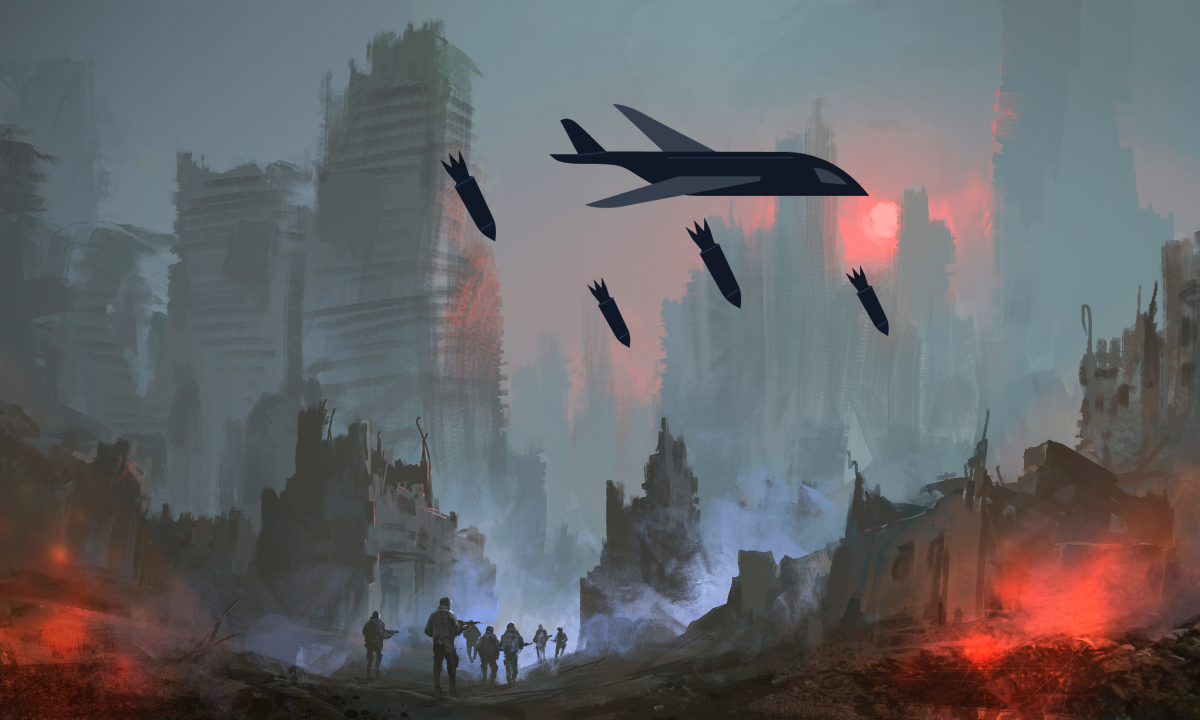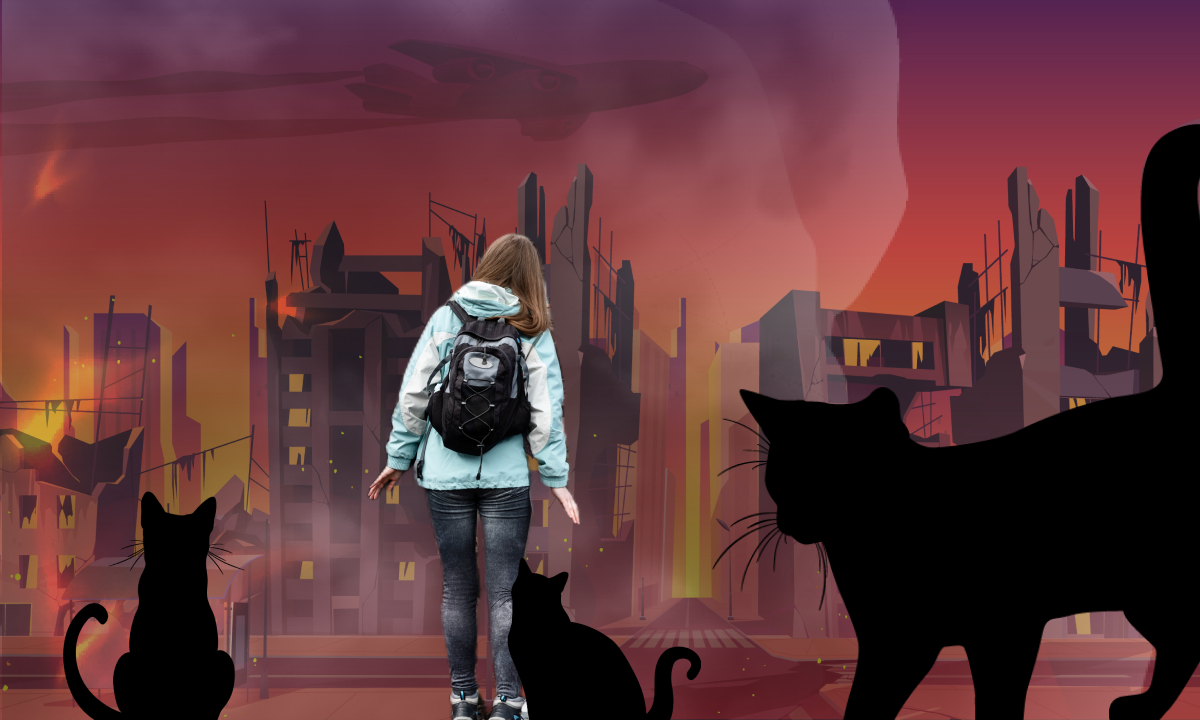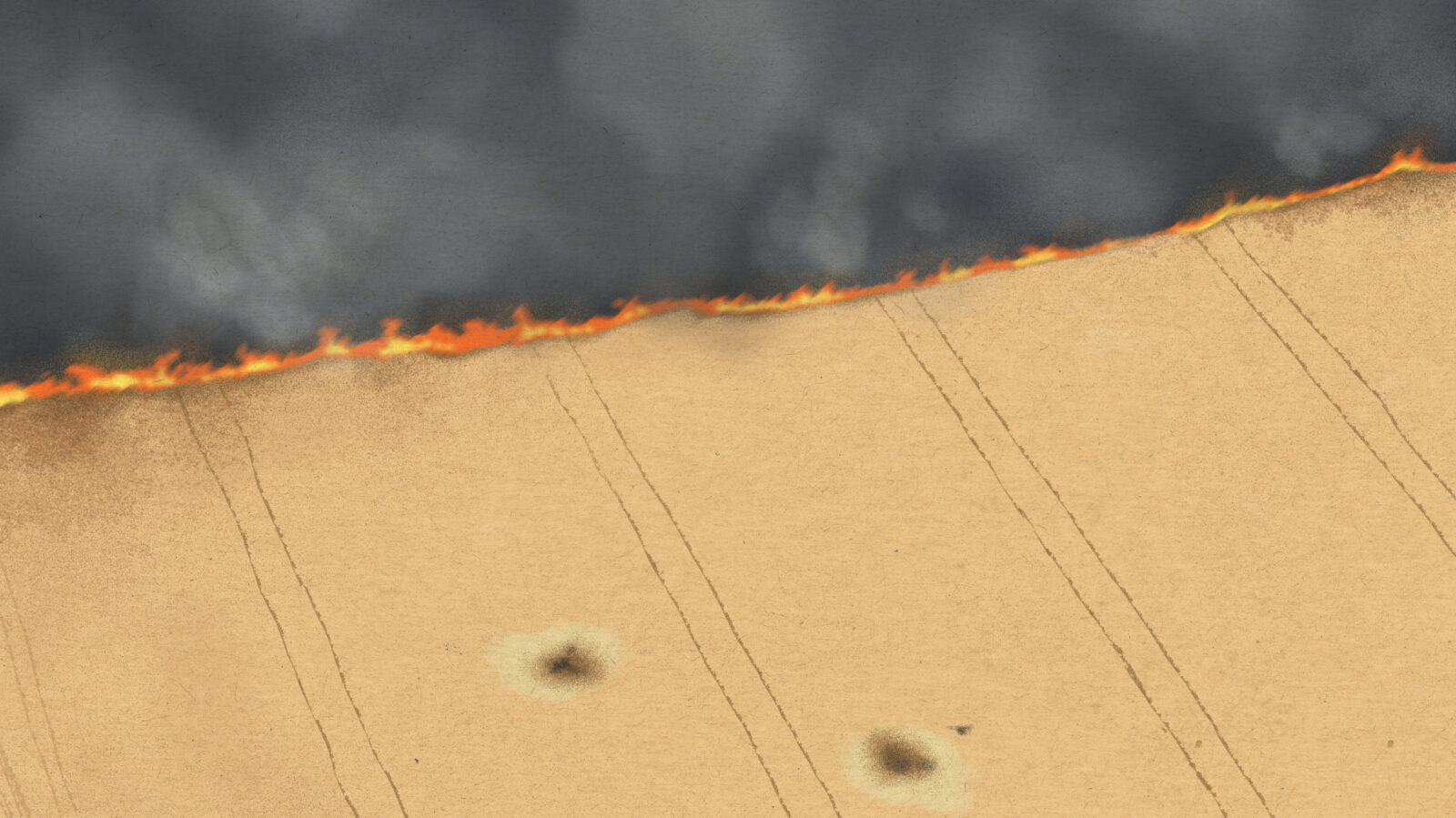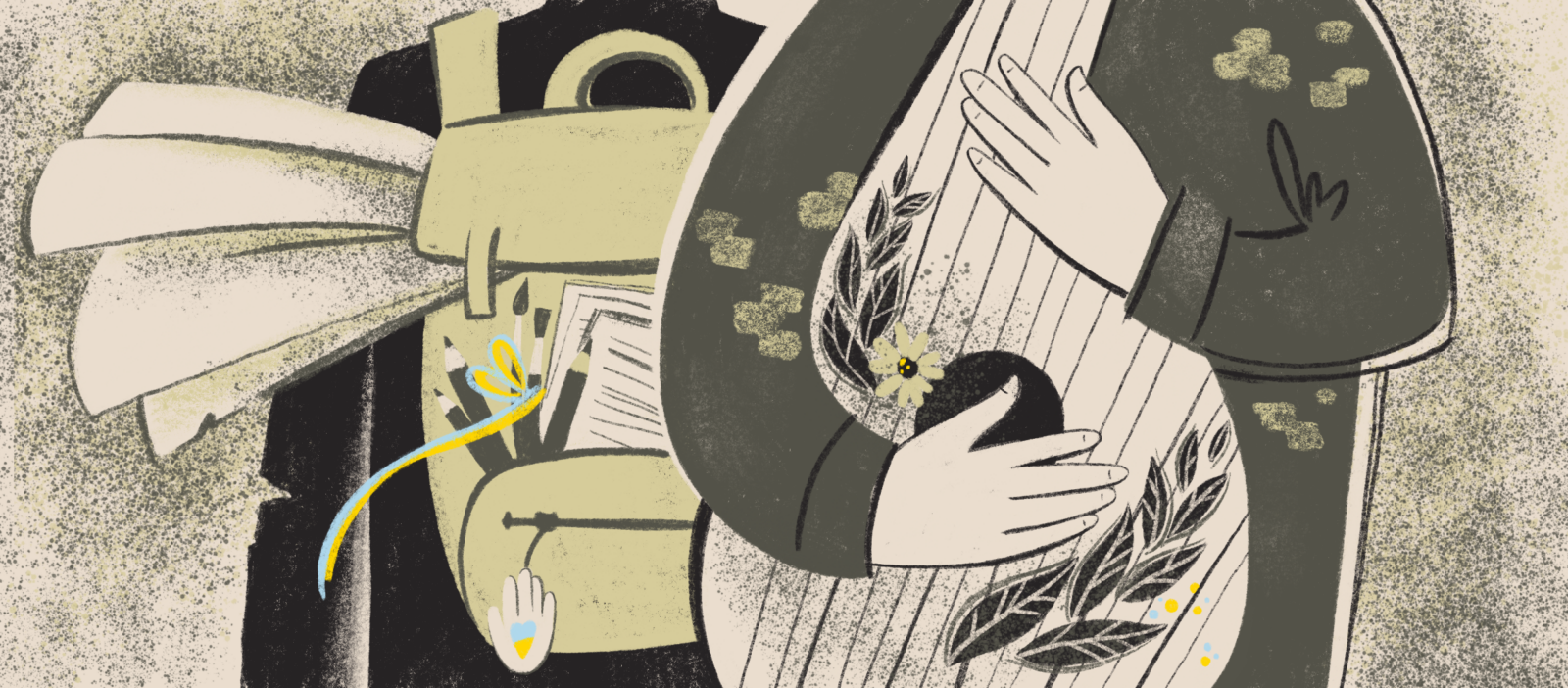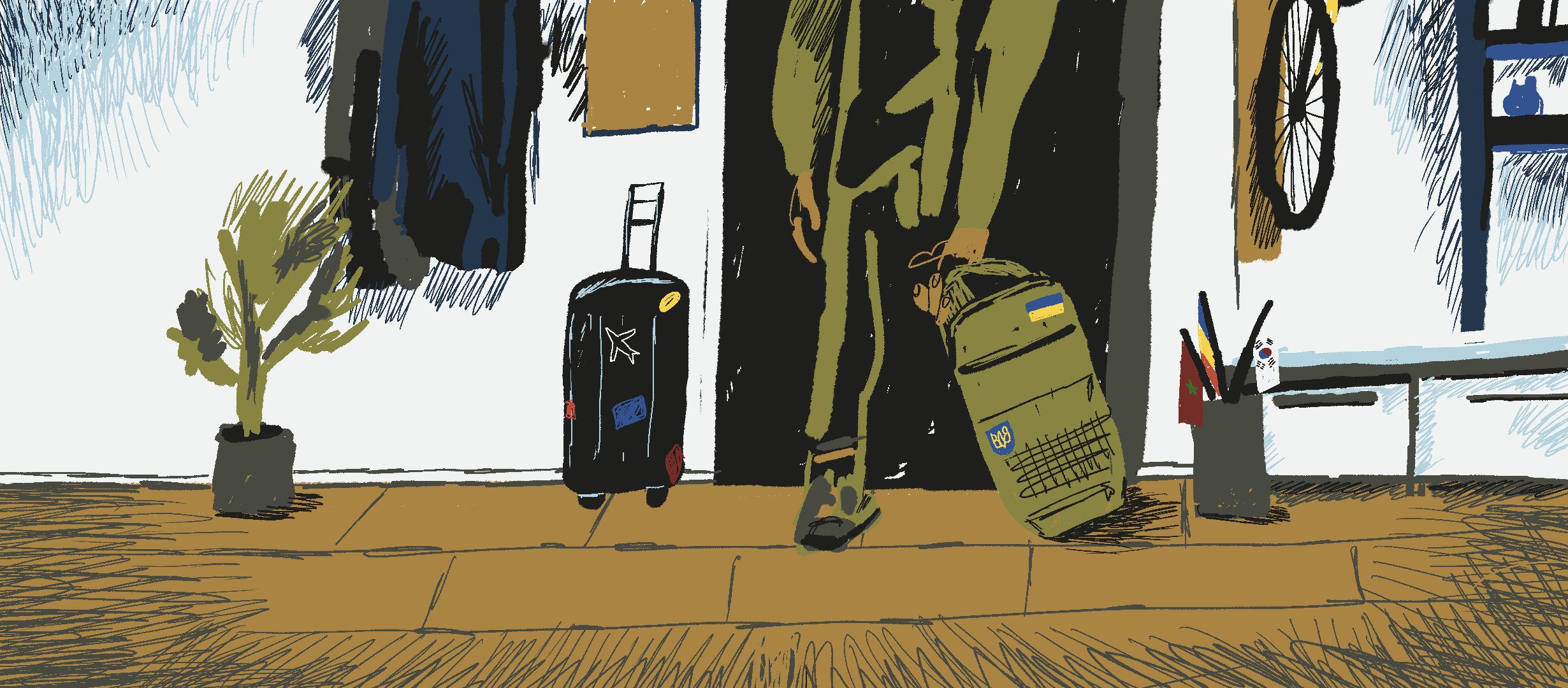Alevtyna got out of hell, which is called Mariupol now. She was born and raised in this city. The woman worked as a TV host of a morning show and used to wake the city up with the words, “Mariupol, good morning!” Later on, she set up her TV project titled A Place of Power, as she always perceived the city as something more than home. It was her power.
Together with her family, Alevtyna spent 21 days in the blockaded Mariupol, and on February 16, she evacuated from the city. Today, she dreams about the city: the streets with flowers and her friends walking along. In reality, some of her friends and neighbors are dead. Their bodies still lie on the destroyed roads. More than 80% of the buildings are damaged.
On the first day of the war, Alevtyna and her family were on the outskirts of Mariupol. They celebrated her 12-year-old brother’s birthday. The family stayed and lived there till March 8, when the situation reached a critical point. The nearby houses were blasted, so they decided to move to their flat downtown. Under the shelling, they walked 7 kilometers.
“When we got outside, they were shelling our neighborhood. We saw a dead body near the neighbor’s house. There was also an injured girl. She begged for help and asked us to tell someone about her location so they could take her away by car. We didn’t have a car. Together with two children, we were all just walking on foot,” Alevtyna recalls.
When the family arrived at their flat downtown, they felt safe for a short period of time. The head of the local association of co-owners of an apartment building organized a field kitchen. Neighbors gathered together and cooked over an open fire, helping each other. They didn’t have electricity, running water, or communication for many days then. A bomb shelter in their block was overcrowded, so other people let them into the basement of a local shop nearby. Nine people, including children, an elderly grandmother, and parents, lived together in a stuffy stockroom underground.
Alevtyna visited a local theater every day. People gathered there and discussed how to escape the city without a car. They were all waiting for bus evacuations and “green corridors.” However, there was no good news. The point of no return came on March 16.
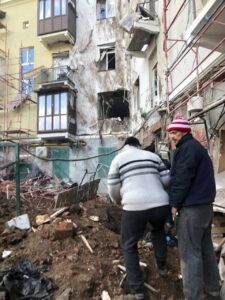
At that time, the neighbors gathered near the block to prepare meals. Because there was no electricity, cooking went like this: “They lit the fire. Everyone brought anything they had. The soup consisted of a lot of water, three potatoes and a handful of wheat.”
Alevtyna and her family went to their flat to take plates. At that particular moment, they felt a powerful blast. The ceiling above them started cracking.
“I went outside with my husband and saw that the bomb fell on the entrance to our block, directly on the place where people were lighting the fire. There was a 4-meter deep shell hole. Everything that was in front of the building turned into a mash, parts of human bodies protruding from under the rubble. We started digging and dragging people out. The first two were our dead neighbors, Halia and Vania. We covered them with blankets and put them in front of the entrance.”
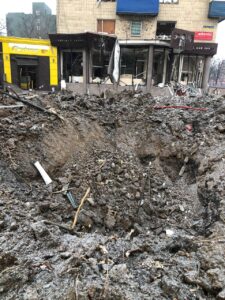
But there was no possibility to continue. The shelling was only growing stronger. The family decided to take a risk and leave the city.
“The blocks were seriously damaged. It was obvious the next bomb would turn the basement we were hiding in into a common grave,” says Alevtyna.
It was difficult for their elderly parents to walk, so they stayed together with her brother in the basement. The rest of the family fled to the nearest village on foot under the shelling. They walked for almost a day until they reached their acquaintances nearby.
Alevtyna was crying all the time. She realized that if she didn’t return for her parents, she would probably never see them alive. She convinced her acquaintance to go back to the city center by car and take her parents. By that time, the situation got even worse: the building was damaged, and the road in front of it was ruined.
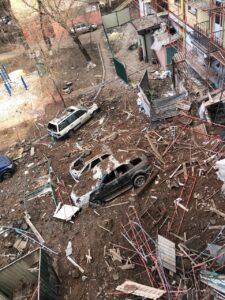
When they parked near the neighboring building, Alevtyna dashed to the basement where her family was hiding. Everyone was alive but terrified. Her brother was about to finish the last handful of dry oatmeal. When they got into the car together, a shell blew up just 30 meters away. The rear window of the car was blown out. They were stunned but managed to drive and leave the city. Shells were exploding next to them all the way. People helped the family to flee from the village to Zaporizhia. There they got on the evacuation train.
Through all the russian block posts and under the shelling, Alevtyna always had a Ukrainian flag in her bag. She believes that she will come back to rebuild her lovely city one day.
“I want to shout to the whole world about what is happening in Mariupol. I’m sure that people who haven’t been there can’t imagine the hell that is happening in the city. It simply can’t happen in the 21st century. The worst thing is that when you’re there, you stop fearing death. You are not surprised when your friends or neighbors die, and you don’t turn away from dead bodies.
“I want to shout out: ‘Save my Mariupol. Save my soul. Save thousands of lives.’ Even if I am grateful to everyone who has helped my family, everyone who supports us now, I am not sure if anyone will hear and understand my cry.”
Translated by Inna Voloska





